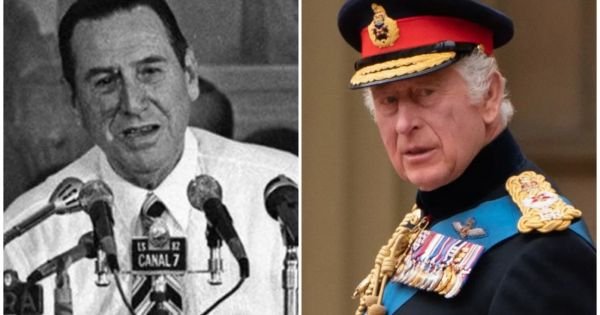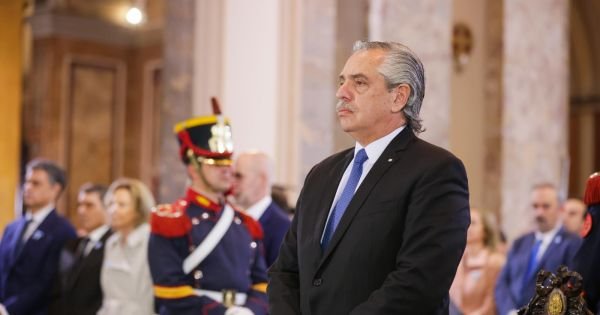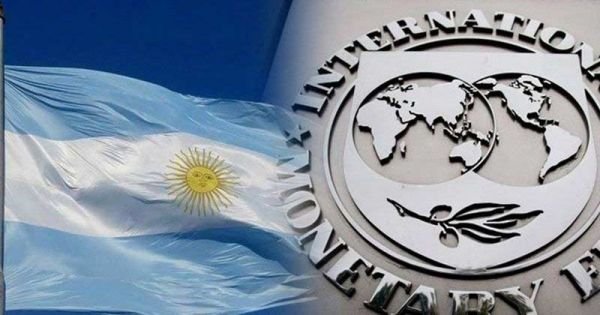[ad_1]
No Argentine special delegation to Charles III Coronation; when Peron proposed UK the purchase of Falklands
Peron government reportedly sought a long-term economic agreement with Britain, requiring them to renounce claims to the Falklands, according to 1984 UK documents cited by Argentine sources
Contrary to all the pageantry, rituals, and displays of past Coronations in the United Kingdom, this time Argentina is sending no special, much less extraordinary delegation to the coronation of King Charles III on Saturday, and is limited to the attendance of its ambassador in London, Javier Figueroa.
Ambassador Figueroa was also the diplomat responsible last year for the condolences and presence at the funeral rituals on the death of Queen Elizabeth II.
In both occasions it is very distant from all other events beginning with the coronation of Queen Victoria in 1838, when the main representative of the United Provinces of the River Plate at the time, was dictator Juan Manuel de Rosas, an admirer of the British Empire and who would later, as a defeated leader, exile in England.
In effect chronicles discovered by the Argentine historian Jorge Mayer, point out that the so called Commercial Gazette in the mid 19 century was full of praise for the excelled Queen Victoria, for her marriage to German Prince Albert, and even the birth of her nine children baptized with water brought from the Jordan river in the Holy land. And in an anniversary of the Queen’s coronation, to celebrate jailed prisoners were set free by the Buenos Aires administration .
Victoria was followed by Edward VII, crowned on 9 August 1902. Coronations at the time were also enshrined by an outstanding naval review of the Royal Navy at Spithead, close to Portsmouth. The Royal Navy as the most powerful at the time rules the seas and the waves, and some foreign vessels were also invited for the grand display. In this case Argentina sent the frigate Sarmiento, which still exists and is anchored in the port of Buenos Aires.
Nine years later, 22 June 1911, it was George V who was crowned and Argentine special envoy Jorge V. Diaz was received in a special audience by the King who warmly thanked the best wishes sent by Argentine president, Dr. Roque Sáenz Peña. At the time Argentina had one of the six richest economies in the world, and competed with the US as a magnet for migrants.
Apparently the Argentine cruiser Buenos Aires, sent to the naval parade was distinguished by King George V and selected to sail next to the royal flag vessel, to the admiration and enthusiasm of the crowds watching, according to reports from envoys sent to England.
In January 1936 Edward VIII was chosen to become King but he abdicated and was replaced by George VI on 12 May 1937, and again Argentina sent a cruiser, ARA Moreno to join the Royal Navy display. Argentine officers and sailors were much praised by enthusiastic crowds, point out newspaper reports of the time in Argentina.
Finally George VI was succeeded by his eldest daughter, Elizabeth, Alexandra, Mary in May 1953 who was to become Elizabeth II, 2nd June 1953. Then president Juan Domingo Peron sent his vice president, Alberto Teisaire to the ceremony as an extraordinary and plenipotentiary ambassador.
Argentina wants to double honor Great Britain sending a personality who replaces president Peron when he is out of the country, and at the same time en eminent representative of one of the three forces which counts predominantly with British predilection, published the recently founded newspaper Clarin.
But in reality the special mission of the Rear Admiral was not only to represent Argentina at the Coronation, but to also formalize a proposal from Peron for the recovery of the Falkland Islands. In effect during a meeting at the Park Lane Hotel Teisaire informed Lord Reading, head of the Latin American affairs at the Foreign Office of the Peron government intention of buying the Falkland Islands, thus ending the occupation since January 1833.
According to Argentine sources, based on 1984 declassified UK documents, the Rear Admiral said that the Peron government wished that economic Anglo-Argentine relations would be established on strong foundations and that the proposal, as part of a long term agreement, demanded Britain drops all rights and claims over the Malvinas Islands.
Although no sums of the offer were reported, the UK official rejected the proposal and justified the negative position arguing that the inhabitants of the Falklands were British, and if a referendum was held, they would unanimously vote to remain under the British flag. In the documents and in brackets it was added that the Argentine Admiral agreed that most probably it was true.
It was recorded in the declassified reports that Lord Reading told the Argentine vice president that it was unconceivable that any British government would consider the sale of the Falkland Islands.
If they did agree to the sale, there would be such an immediate tremendous popular outroar, that government most probably would be defeated, added Lord Reading, again according to Argentine sources based on the Foreign Office 1994 declassified documents
[ad_2]
Source link




